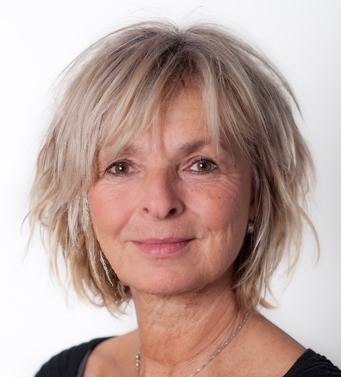16 June 2020 · Global Partnership for Zero Leprosy
Thank you to Dr. Christine Fenenga: A foundational contributor to GPZL
 Dr. Christine Fenenga, MPH, PhD, has has played an important role in the foundation of the Global Partnership, shaping GPZL’s Operational Excellence work since joining the Secretariat in 2018. She came to the Partnership from a background in cultural sociology and international public health. Christine has dedicated her career to advancing health across the globe– working in countries in Africa, Asia, and Europe, on health policy, client perspectives in healthcare, and issues around socio-cultural determinants of health. She has served in a number of public and private sector roles, from a Prevention of Disability Advisor for the National Leprosy and TB Program in Indonesia, to adviser to the National Health Insurance Scheme of Ghana, to Health Systems Researcher and Best Practice Advisor for PharmAccess International in the Netherlands. Her commitment to addressing socioeconomic barriers in healthcare has been a major driver in her career and has shaped her work with GPZL.
Dr. Christine Fenenga, MPH, PhD, has has played an important role in the foundation of the Global Partnership, shaping GPZL’s Operational Excellence work since joining the Secretariat in 2018. She came to the Partnership from a background in cultural sociology and international public health. Christine has dedicated her career to advancing health across the globe– working in countries in Africa, Asia, and Europe, on health policy, client perspectives in healthcare, and issues around socio-cultural determinants of health. She has served in a number of public and private sector roles, from a Prevention of Disability Advisor for the National Leprosy and TB Program in Indonesia, to adviser to the National Health Insurance Scheme of Ghana, to Health Systems Researcher and Best Practice Advisor for PharmAccess International in the Netherlands. Her commitment to addressing socioeconomic barriers in healthcare has been a major driver in her career and has shaped her work with GPZL.
One of Christine’s most notable accomplishments with the partnership was the initiation and coordination of the Operational Excellence Working Group. The Operational Excellence Working Group, comprised of international thought leaders in leprosy, worked to identify promising best practices innovations in leprosy prevention and control. This group had over 200 members, working across 3 languages to document best practices in the areas of: Identification/PEP, Early Detection and Prompt Treatment, Disability, Stigma, and Infrastructure/Operational Capacity. All these best practices are freely available to the leprosy community and can be accessed in GPZL’s online Zero Leprosy toolkit. In addition to authoring best practices for the leprosy community, the Operational Excellence Working Group provided a platform for numerous organizations to share knowledge and build upon successful approaches in leprosy prevention and control. The Operational Excellence Working Group was able to achieve all this thanks to Christine’s commitment, drive, and passion for the mission of the group.
In addition to leading Operational Excellence work, Christine developed GPZL’s Country Model, which is the foundation of GPZL’s joint work in countries, in partnership with Ministries of Health and National Leprosy Programmes, and other public and private partners, including WHO and organizations for persons affected by leprosy. The Country Model aims to support countries in developing roadmaps for Zero Leprosy and implementation plans aligned with the WHO/NTD 2030 framework and targets. With the support of Operational Excellence Working Group Members, Christine developed needed tools for the model, and tested the Country Model in Nepal and Morocco in 2019. In 2020 she developed an in-depth implementation plan and country selection process to roll out the tested Country Model.
Christine has also represented GPZL’s work to the larger NTD community, presenting at the International Leprosy Congress in Manilla (pictured left) and the NNN (Neglected Tropical Disease NGO Network) Conference in 2019. Here, Christine presented on the Zero Leprosy Country Model and GPZL Action Framework, highlighting the model’s foundation in Nepal, and presented next steps for future country reviews. Her work has also made possible other important events, such as the 4-day Post-Exposure Prophylaxis (PEP) Workshop in Amsterdam, in 2019, which explored methods for scaling up PEP and advancing research.
Christine has worked countless hours, traversed across several continents, and has been the driving force behind many of GPZL’s contributions to the work of leprosy control and prevention. Her contributions have been essential to the growth and success of this partnership and will be remembered worldwide.
By Arielle Nelson, Communications Intern for GPZL.